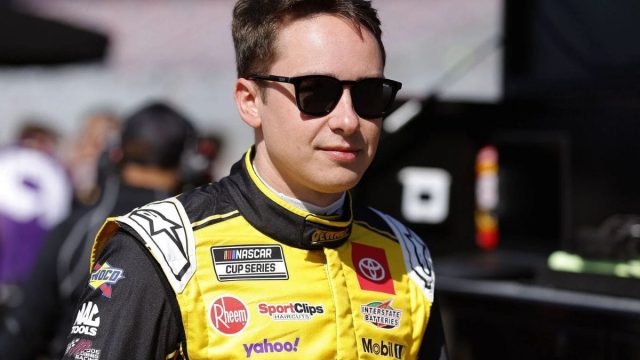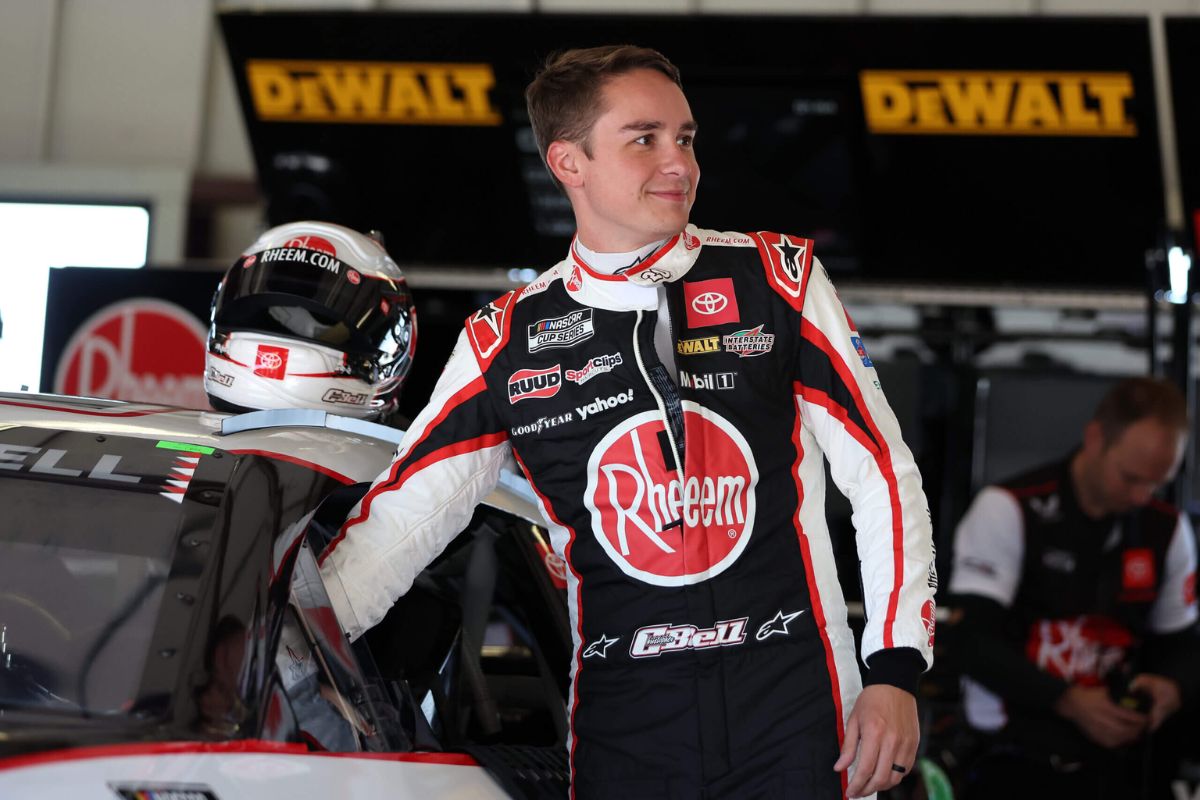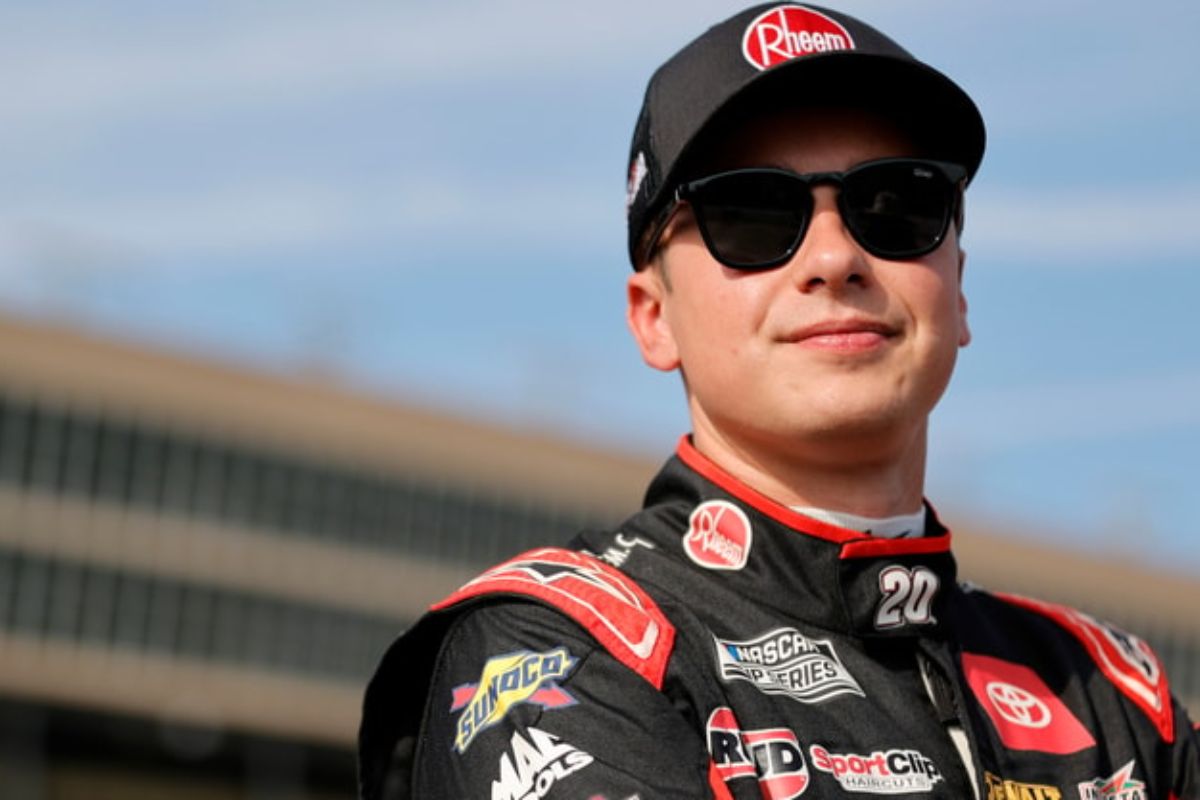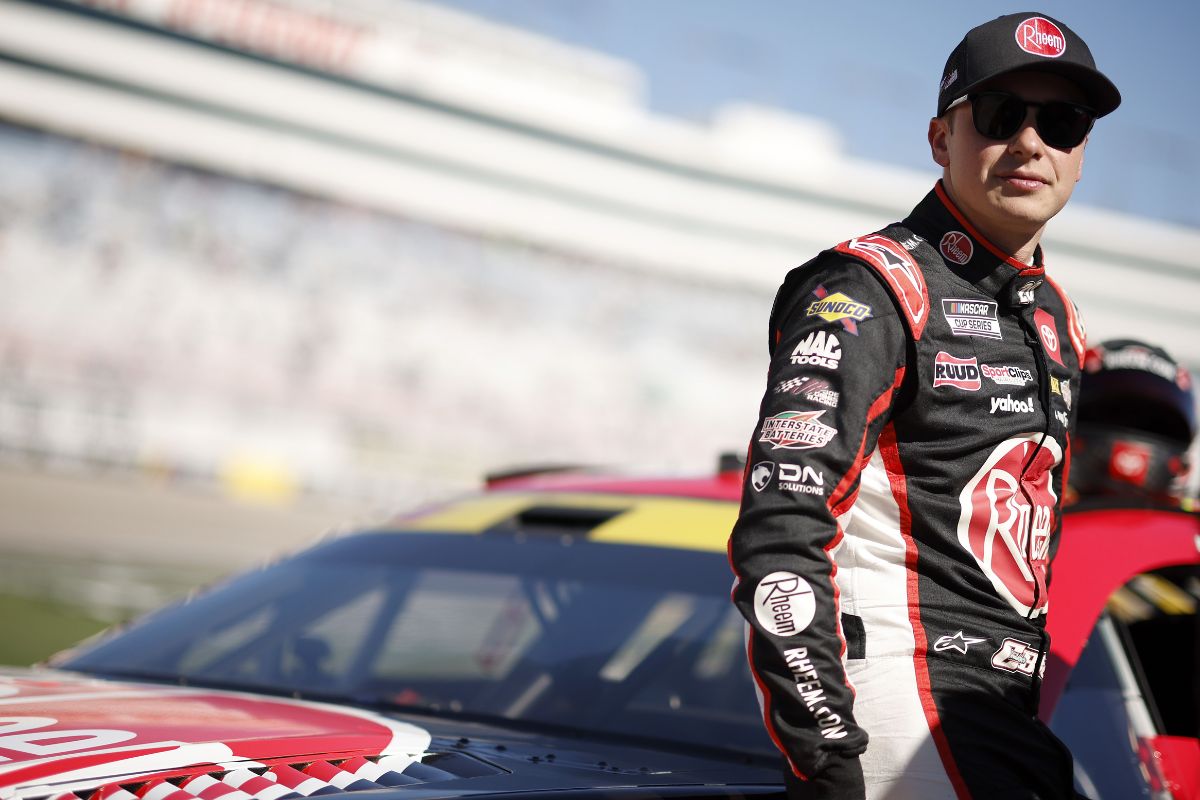Christopher Bell Slams NASCAR’s Goodyear Experiments: Christopher Bell‘s recent criticisms regarding NASCAR’s collaboration with Goodyear on tire experiments raise questions about the impact of such changes on competitive integrity. His concerns about the inconsistency of tire performance and the potential overshadowing of pure racing skill highlight a growing tension within the sport. As drivers grapple with the implications of evolving tire technology, the broader ramifications for championship dynamics come into focus. What might this mean for the future of NASCAR, particularly as teams adapt to an increasingly unpredictable landscape?
Key Highlights
- Christopher Bell criticizes Goodyear’s tire experiments, expressing concerns about their impact on race outcomes and driver performance.
- He advocates for greater consistency in tire performance across events to maintain competitive integrity.
- Bell feels torn about the direction of NASCAR’s tire technology, questioning the balance between tactical strategies and traditional racing values.
- His remarks highlight a divide among drivers regarding the new option tires rule, with varying opinions on its effect on race dynamics.
- Bell emphasizes the need for clearer communication between drivers and tire manufacturers to improve overall racing experiences.
NASCAR Cup Series Playoffs
The NASCAR Cup Series playoffs represent the pinnacle of competitive racing, where 16 of the best drivers vie for the championship title. Starting at Atlanta Motor Speedway and culminating at Phoenix Raceway, this intense elimination format is designed to show the skill, strategy, and resilience of the competitors. Among the standout contenders are Tyler Reddick, Kyle Larson, Christopher Bell, and Ryan Blaney, each bringing a unique combination of experience and talent to the track.
The playoffs are structured into rounds, with drivers accumulating points through their performance in each event. The top finishers advance, while others are eliminated, creating a high-stakes environment where every race greatly affects the drivers’ chances of securing the coveted title.
This year, Bell enters the playoffs with notable momentum, having already secured three wins, including critical victories at Charlotte Motor Speedway and Phoenix Raceway—two pivotal venues in the playoff schedule.
However, the 2024 playoffs are set against the backdrop of new competition dynamics introduced by NASCAR’s decision to allow option tires. This controversial change is expected to affect race strategies and outcomes, as drivers and teams must navigate the complexities that come with varying tire performance.
As the playoff races unfold, the interplay between driver skill and tire strategy will be a focal point for both competitors and fans alike. The anticipation surrounding the playoffs highlights the inherent unpredictability of motorsport, making each race a must-watch event for enthusiasts.
Christopher Bell’s Critique of the Option Tires Rule
How can a single rule change the essence of competition in NASCAR? The introduction of the Option Tires Rule at the NASCAR All-Star race has sparked considerable debate. While these new tires were designed to improve driver control and speed, concerns regarding their impact on traditional racing dynamics have emerged. Christopher Bell has been vocal in his critique, emphasizing the dichotomy created by the option tires.
According to Bell, the potential for “comers and goers” exists, yet he highlights the risk of rewarding teams that might not perform well throughout the race but capitalize on tactical tire usage. His comments raise critical questions about the nature of competition and the criteria for crowning a champion.
“The option tire. Does it produce comers and goers? It does but it also if you’re not good then you’re gonna do the opposite, right? So what do we want the champion to be? Do we want the champion to be the best car or do we want to be the guy that sucked all race and saved a set of red tires that got the lucky yellow?”
“Yeah I am very torn on it and we’re getting further and further away from traditional racing.” – bell
Bell articulated his frustration, stating, “We’re getting further and further away from traditional racing.” This perspective invites a broader evaluation of how such rules can dilute the integrity of competition, shifting the focus from pure performance to tactical tire management. As NASCAR continues to innovate, it becomes imperative to weigh the implications of such changes on the sport’s fundamental principles, potentially redefining what it means to be a champion.
View this post on Instagram
Mixed Reactions to the Option Tires Rule
Mixed reactions to the Option Tires Rule have emerged from within the NASCAR community, revealing a divide among drivers and fans alike.
On one side, drivers like Daniel Suarez have welcomed the new red tires, praising their performance and suggesting that they improve the racing experience. Suarez’s enthusiasm indicates a belief that these tires could be a pivotal element in creating an exciting competition, as evidenced by his assertion that they would be well-received by both NASCAR and its fans.
“These option tires, if NASCAR and the fans didn’t like it, I don’t know what they would like because they were amazing.” – Suarez
Conversely, skepticism abounds among several prominent racers. Denny Hamlin and Joey Logano have articulated concerns regarding the unpredictability associated with the option tires. Their apprehensions center on how these tires might disrupt the natural flow of a race, potentially leading to outcomes that could seem arbitrary rather than earned.
Christopher Bell encapsulated a more profound concern during his discussion with Jeff Gluck, arguing that the sport is straying from its traditional roots.
This perspective resonates with a segment of the fan base that feels likewise disenfranchised by the ongoing changes. The essence of racing, as some see it, is increasingly being overshadowed by experimental strategies that may prioritize spectacle over skill.
NASCAR’s Introduction of Option Tires and its Impact
Introducing option tires has fundamentally altered the landscape of NASCAR racing, generating a spectrum of reactions that underscore the sport’s evolving dynamics. The introduction of these tires allows teams to choose between different compounds, creating tactical opportunities that can considerably influence race outcomes. This shift has prompted a reevaluation of tire management, pit strategies, and general race tactics, as teams must now assess the advantages and disadvantages of each option.
The impact of option tires extends beyond mere performance metrics; it has also fostered intense debates among drivers, teams, and fans. Some view the change as a progressive step towards enhancing competitiveness, believing it injects an element of unpredictability that can lead to thrilling race finishes. Conversely, others, including prominent figures like Christopher Bell, express concerns about the potential for inconsistency and confusion.
The complexity of decision-making regarding tire selection can lead to heightened pressure on teams and drivers, complicating what is already a demanding sport.
Moreover, the introduction of option tires has illuminated broader discussions about safety and durability. Concerns arise regarding how different tire compounds respond under varying conditions, raising questions about the balance between innovation and reliability.
Other Significant Changes in NASCAR This Season
This season, NASCAR has undergone a series of considerable changes that extend beyond the controversial introduction of option tires, reflecting the organization’s commitment to improving both driver safety and competitive performance.
The recent implementation of safety measures, in response to a notable incident at Michigan International Speedway, emphasizes this commitment. Particularly, NASCAR has mandated the installation of right-side rear-window air deflectors on all cars, which are designed to boost aerodynamic stability and driver protection during high-speed events.
In addition to safety improvements, the introduction of new car models has also reshaped the competitive landscape. Key changes this season include:
- Improved SAFER (steel and foam energy reduction) barriers at critical points on the track
- Ford’s introduction of the Mustang’s Dark Horse Model, which showcased impressive performance in Daytona
- Toyota’s launch of the Camry XSE model, contributing to remarkable successes for drivers like Tyler Reddick
- Ongoing modifications to race regulations aimed at promoting more competitive racing dynamics
These noteworthy changes reflect NASCAR’s proactive approach to addressing safety and performance issues, ensuring that both drivers and teams remain at the forefront of innovation.
News in Brief: Christopher Bell Slams NASCAR’s Goodyear Experiments
The ongoing experimentation with Goodyear tires in NASCAR raises critical questions regarding the consistency and reliability of tire performance. Christopher Bell’s concerns highlight the potential for tactical tire usage to overshadow the nature of competitive integrity within the sport. As changes to tire technology continue to evolve, it becomes increasingly crucial for NASCAR to guarantee that drivers receive clear communication and that performance remains stable, thereby preserving the integrity of championship competition in the face of innovation.
ALSO READ: Christopher Bell on Option Tires: ‘I’m Very Torn on It’ About Their Use in Championship 4



